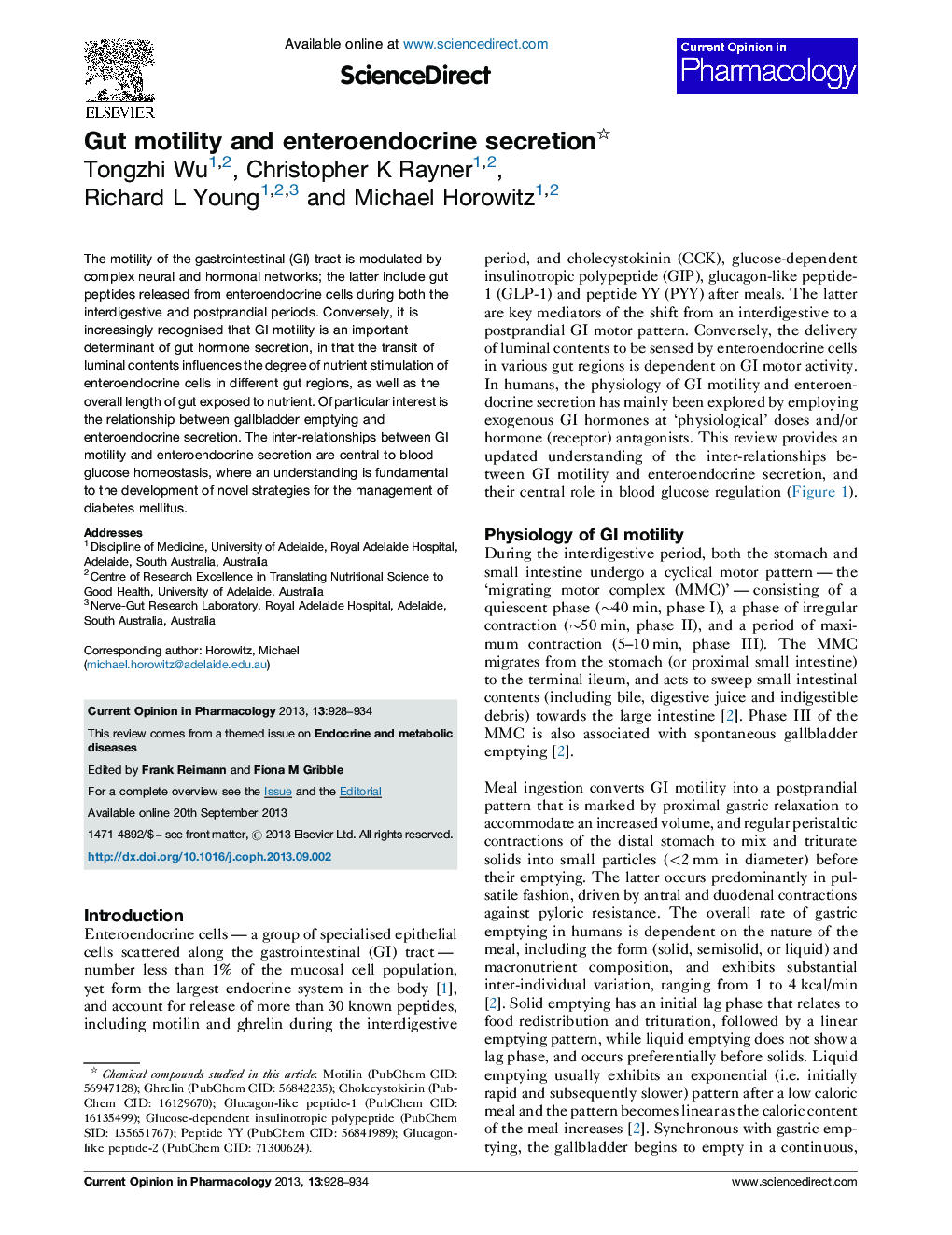| Article ID | Journal | Published Year | Pages | File Type |
|---|---|---|---|---|
| 5826242 | Current Opinion in Pharmacology | 2013 | 7 Pages |
â¢Motilin and ghrelin regulate interdigestive gastrointestinal (GI) motility.â¢Enteroendocrine hormones released after meals determine GI motor patterns.â¢GI motor function is a key determinant of enteroendocrine secretion.â¢GI motility and enteroendocrine secretion are central to blood glucose homeostasis.
The motility of the gastrointestinal (GI) tract is modulated by complex neural and hormonal networks; the latter include gut peptides released from enteroendocrine cells during both the interdigestive and postprandial periods. Conversely, it is increasingly recognised that GI motility is an important determinant of gut hormone secretion, in that the transit of luminal contents influences the degree of nutrient stimulation of enteroendocrine cells in different gut regions, as well as the overall length of gut exposed to nutrient. Of particular interest is the relationship between gallbladder emptying and enteroendocrine secretion. The inter-relationships between GI motility and enteroendocrine secretion are central to blood glucose homeostasis, where an understanding is fundamental to the development of novel strategies for the management of diabetes mellitus.
Graphical abstractDownload high-res image (132KB)Download full-size image
